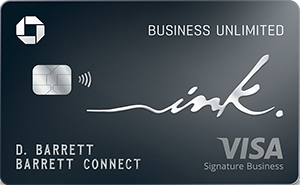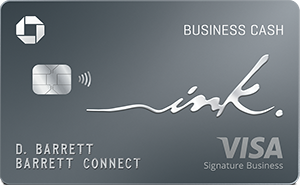When starting a business, there are many factors to consider. What will you name the business? What service or products will you be selling? Will you be hiring employees (45% of all workers work for a small business). What will your online and marketing strategy be?
And while those are all important, vital even, it’s safe to say that some of the seemingly more mundane issues that need attention should take precedence over those more interesting, and dare I say, fun, decisions.
As an attorney who spent many years helping entrepreneurs start and dissolve businesses, I admit I may be a bit biased. But to me, maybe no decision you can make when starting a new venture is more important than what legal form the business will take. Make the wrong choice and it could, at some point, mean the difference between success and failure.
You essentially have four choices for how you will legally form your business. Here’s what they are, and why two of them are way better than the other two.
Sole proprietorship
This is the choice most new small businesses choose, at least at the beginning of the venture. And it is easy to understand why. A sole proprietorship is simply when you hang out a shingle and start selling something. Yes, there are a few hoops to jump through, but they are simple, affordable, and fast — and that is why this is a popular choice for startups. All you need do is:
- Pick a name and register it with your city, county, and/or state
- Get a business license
- Preferably, though not a legality, open a business checking account
In this scenario, you and the business are one and the same. If something goes wrong at the business and it gets sued for example, you personally are the one on the hook.
Why a Business Credit Card Could Transform Your Small Business
These business credit cards that offer a convenient and efficient way to separate personal and business expenses, simplifying accounting and tax reporting.
Additionally, business cards can provide valuable perks such as rewards points, cashback, and expense tracking tools, enhancing financial management and the potential to help save money in the long run.

Ink Business Unlimited® Credit Card |
Earn $900 bonus cash back Earn $900 bonus cash back after you spend $6,000 on purchases in the first 3 months from account opening. |
Earn unlimited 1.5% cash back on every purchase Earn unlimited 1.5% cash back on every purchase made for your business |
Purchases: 0% Intro APR on Purchases, 12 months Balance Transfers: N/A
Regular: |
|

Ink Business Cash® Credit Card |
Earn up to $750 bonus cash back Earn $350 when you spend $3,000 on purchases in the first three months and an additional $400 when you spend $6,000 on purchases in the first six months after account opening. |
Earn 5% cash back in select business categories Earn 5% cash back on the first $25,000 spent in combined purchases at office supply stores and on internet, cable and phone services each account anniversary year. Earn 2% cash back on the first $25,000 spent in combined purchases at gas stations and restaurants each account anniversary year. Earn 1% cash back on all other card purchases with no limit to the amount you can earn. |
Purchases: 0% Intro APR on Purchases, 12 months Balance Transfers: N/A
Regular: |
See? Not a great choice.
Partnerships
A partnership is essentially the same as a sole proprietorship, but shared by two or more people. The legal issues and potential liability are the same, so no, we don’t like this option much either. In addition, know that with a partnership, one partner can take on a debt or liability, or sign a contract in the name of the business, and both partners are liable for it.
I once represented a partnership where the VP of Marketing signed a $75,000 contract for a SkyMall ad, without asking his other partners if that was OK or even a good idea. The ad flopped. So did the business. I represented them in a bankruptcy proceeding.
The next two options are much better and I will lump them together, as they are very similar.
LLC or S corporation
An LLC and S corp are separate legal entities, and one of these is the better choice for your business. Whereas a sole proprietorship or a partnership are the same as the owner, legally speaking, these two are new legal entities, separate and apart from the owner. Steve Strauss Content is the same as Steve Strauss. Steve Strauss Content, Inc. is a unique legal entity unto itself.
And that’s the legal magic. If something goes wrong with your LLC or S corp, it is the business that is on the hook, not you personally. Your home, savings, investments, everything, is legally protected.
LLC stands for Limited Liability Company. And an S Corporation is, well, a corporation. They are similar in that an LLC legally is almost exactly like an S corporation, only the rules of running it are a bit more lax. With an S corporation, there are corporate minutes to keep, officers to name, and other requirements.
While these formalities may seem cumbersome, they really are not. By using an online, do-it-yourself legal site like LegalZoom or Rocket Lawyer, you can create an S corp or an LLC yourself for a couple of hundred bucks.
You may be asking, well, is an LLC or S corp better? It depends on a variety of factors. S corps are subject to different tax requirements, for starters. As such, making the choice is best done by consulting an attorney who knows your specific and particular situation.
The bottom line is that while sole proprietorships and partnerships are fairly easy to create, S corps and LLC are almost always a better choice for most small businesses.
